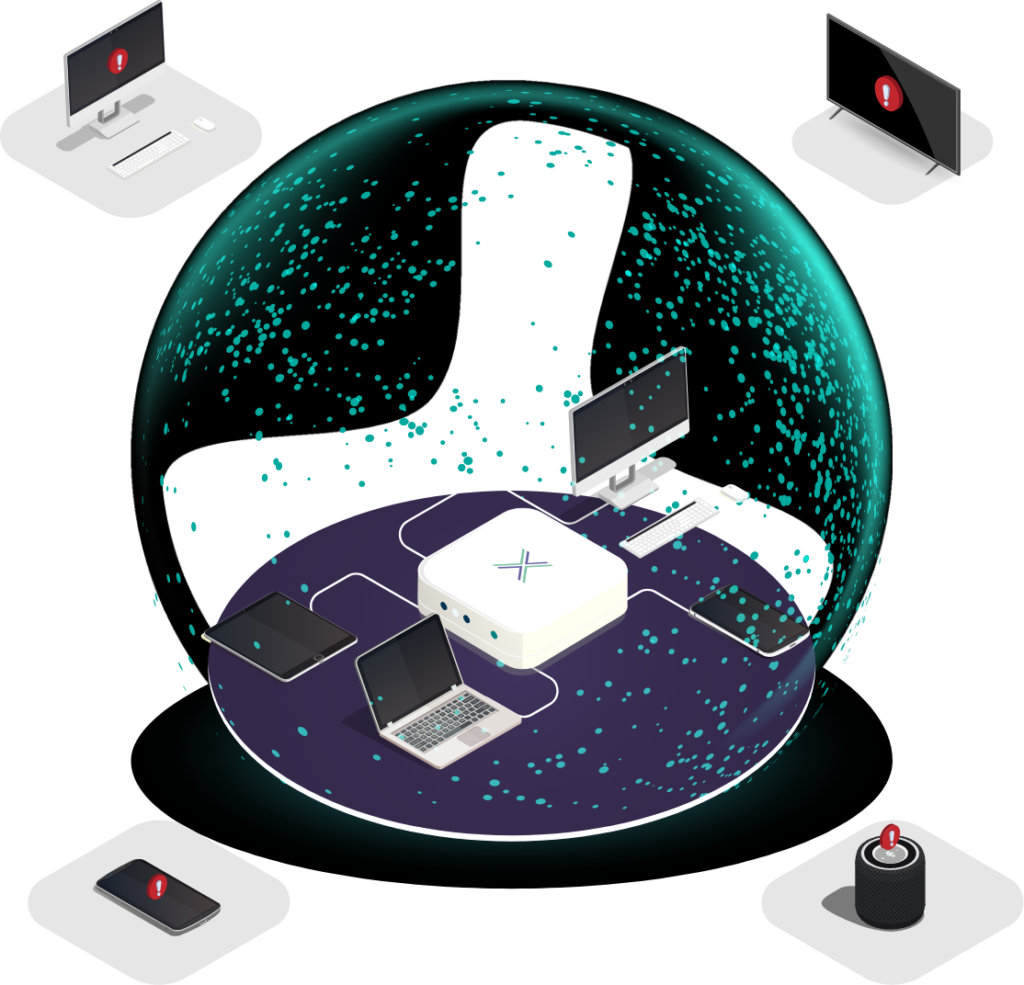As employees increasingly access company data from networks outside direct IT control, businesses must prioritize cybersecurity to mitigate risks. Whether employees connect from home, serviced offices, coworking spaces, or other remote locations, organizations need clear strategies to ensure secure access. This guide outlines essential cybersecurity measures that companies should implement to protect sensitive data, maintain customer trust, and support employees working securely beyond the office IT environment.
1. Provide Secure, Managed Devices
- Issue company-managed laptops, desktops, and mobile devices with pre-configured security settings.
- Ensure all devices have updated security software, including endpoint protection, firewalls, and intrusion detection systems.
- Deploy secure, managed routers like Loxada’s to protect data traffic, even on untrusted networks.
- Enforce the use of Virtual Private Networks (VPNs) or Zero Trust Network Access (ZTNA) solutions to encrypt data and prevent exposure on unsecured networks.
2. Enforce Least Privilege Access & Admin Restrictions
- Remote employees should not use administrative accounts for daily activities to reduce the risk of unauthorized access or malware installation.
- Implement role-based access controls (RBAC) to limit access to sensitive data based on job responsibilities.
- Require IT approval for installing new software to prevent unverified applications from introducing security risks.
3. Strengthen Authentication Measures
- Require multi-factor authentication (MFA) for all business applications and remote access systems.
- Implement Single Sign-On (SSO) solutions to simplify authentication while maintaining strong security controls.
- Enforce the use of unique, complex passwords and encourage the use of password managers.
4. Secure Network Connections
- Provide clear guidelines on securing Wi-Fi networks, including setting strong passwords, disabling default router credentials, and enabling WPA2 or WPA3 encryption.
- Educate employees on the risks of public Wi-Fi and encourage the use of company-managed routers or VPNs when working outside the office.
- Use network segmentation and isolation to prevent unauthorized lateral movement within company systems.
5. Keep Software and Devices Updated
- Enable automatic updates for operating systems, security software, and applications to patch vulnerabilities promptly.
- Ensure remote workers’ routers and other networking devices receive firmware updates regularly.
- Monitor software versions and deprecate outdated applications that pose security risks.
6. Conduct Regular Cybersecurity Training
- Provide ongoing cybersecurity awareness training covering phishing, password hygiene, and secure data handling.
- Simulate phishing attacks to help employees recognize and respond appropriately to suspicious emails.
- Encourage a culture of security, making employees feel comfortable reporting potential threats.
7. Use Secure Communication and Collaboration Tools
- Provide encrypted video conferencing platforms, secure email services, and messaging apps to ensure confidential discussions remain protected.
- Implement policies preventing the use of personal email or messaging services for company communications.
- Educate employees on verifying the authenticity of messages to avoid social engineering attacks.
8. Implement Data Access and Protection Controls
- Adopt a Zero Trust approach, verifying every access request based on identity and device posture.
- Use endpoint detection and response (EDR) solutions to monitor and manage potential threats in real time.
- Encrypt sensitive data at rest and in transit to protect against unauthorized access.
9. Establish Robust Data Backup Strategies
- Require employees to back up important work data regularly to secure, encrypted cloud storage or company-approved backup solutions.
- Implement automated backup policies to ensure critical data is regularly saved and protected against ransomware attacks.
- Test backup and recovery procedures periodically to ensure business continuity.
10. Develop a Comprehensive Incident Response Plan
- Create a dedicated cybersecurity response team responsible for handling security incidents promptly.
- Establish clear communication channels for reporting and responding to security breaches.
- Run regular incident response drills to ensure employees know how to react in case of a cybersecurity event.
Strengthening Remote Security for the Long Term
As organizations embrace flexible work environments, securing remote access to company data is no longer optional—it’s a necessity. By following these cybersecurity best practices, companies can create a secure work environment, protecting both sensitive information and business operations. Implementing strong security measures not only reduces risk but also reinforces customer trust and operational resilience, ensuring employees can work efficiently and securely from any location.

